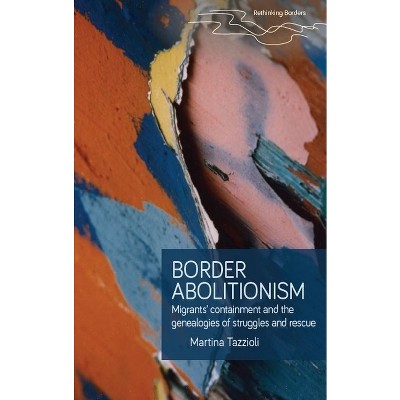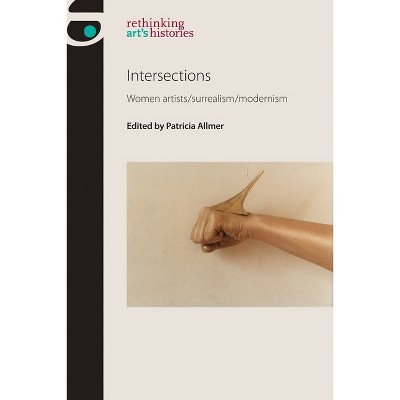Borders of Desire - (Rethinking Borders) by Elissa Helms & Tuija Pulkkinen (Hardcover)

About this item
Highlights
- Borders of desire takes a novel approach to the study of borders: rather than seeing them only as obstacles to the fulfillment of human desires, this collection focuses on how borders can also be productive of desire.
- About the Author: Elissa Helms is Associate Professor in the Department of Gender Studies at Central European University, Vienna Tuija Pulkkinen is Professor of Gender Studies at the University of Helsinki
- 200 Pages
- Social Science, Gender Studies
- Series Name: Rethinking Borders
Description
About the Book
Borders of Desire is a collection of studies from the eastern borders of Europe, particularly the Baltics and the Balkans, that take a novel approach to borders and the work they do. Instead of viewing borders only as obstructions to the fulfillment of desire, this book shows how borders produce desire, particularly gendered and sexualized desire.Book Synopsis
Borders of desire takes a novel approach to the study of borders: rather than seeing them only as obstacles to the fulfillment of human desires, this collection focuses on how borders can also be productive of desire. Based on long-term ethnographic engagement with sites along the eastern borders of Europe, particularly in the Baltics and the Balkans, the studies in this volume illuminate how gendered and sexualized desires are generated by the existence of borders and how they are imagined. As the chapters show, borders can create new desires expressed as aspirations, resentments, and actions including physical movements across borders for pleasure or work, or collective enactments of political ideals or resistance. The collection also shows how the persistent east/west symbolic border continues to act as a source of these desires in European political and social life.From the Back Cover
'Within a literature and dominant political discourse that overwhelmingly continue to view borders as obstacles, this book regards borders as performative: it asks what borders 'do', rather than what they 'are'. By asking how borders produce - rather than only thwart - desires, the authors look afresh at the many ways gender and sexuality are at issue in border crossing.'
Jane Cowan, Emeritus Professor of Anthropology, University of Sussex
Review Quotes
"Within a literature and dominant political discourse that overwhelmingly continue to view borders as obstacles, this book regards borders as performative: it asks what borders 'do', rather than what they 'are'. By asking how borders produce--rather than only thwart--desires, the authors look afresh at the many ways gender and sexuality are at issue in border crossing. Considering desire, they return attention to the agency, humanity and imagination of border crossers and offer a glimpse into the complexity of their dreams, their decision-making and their experiences."
Jane Cowan, Emeritus Professor of Anthropology, University of Sussex
Olga Tkach, Journal of Borderlands Studies
"This volume provides pivotal insights into important immediate antecedents to current anxieties, imaginaries, and controversies playing out on Europe's eastern borders."
Katharina Wegmann, Comparative Southeast European Studies
'Unarguably, one of its most important contributions is the conceptualization of borders as porous and contingent. Under the current geopolitical tensions and the hardening of state borders between the EU states with Russia and Belarus as well as the symbolically hardening of borders between Israel and the Middle East, reflecting the 'othering' processes, the book reveals how border territories that Anzaldúa (1987) and Vila (2003) describe as being infiltrated with hatred, anger, and exploitations, may at the same time create and be filled with various forms of desires. These desires inevitably make the borders porous, revealing their artificiality, yet importance in forming identities and communities and imagining other ways.'
Pauliina Lukinmaa, Nordic Journal of Migration Research
About the Author
Elissa Helms is Associate Professor in the Department of Gender Studies at Central European University, Vienna
Tuija Pulkkinen is Professor of Gender Studies at the University of HelsinkiShipping details
Return details
Trending Poetry











